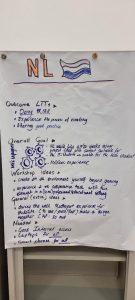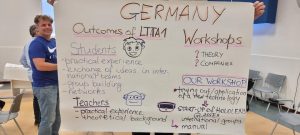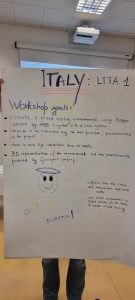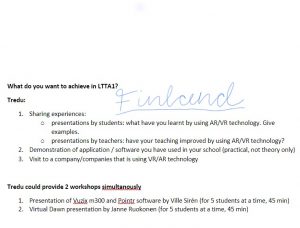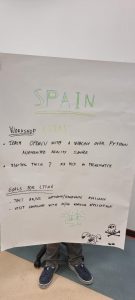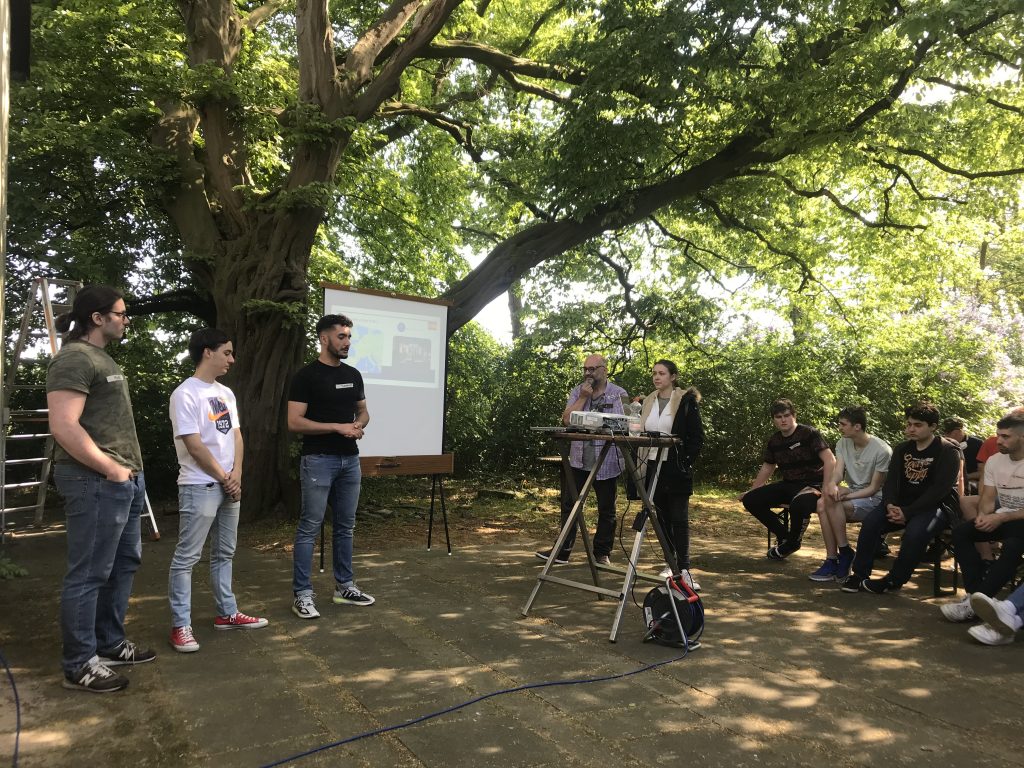About us - Augmented Reality in vocational education and training in the context of Industry 4.0
Let’s futurize Europe! Arveti 4.0 (Augmented Reality in vocational education and training in the context of Industry) is an Erasmus+ funded project, led by the BBS Brinkstrasse Vocational College in Osnabrück, Germany. Together with our wonderful partner schools from the Netherlands, Italy, Finland and Spain we have planned a project lasting 2 years with meetings in each partner country with the overall aim of exploring and understanding augmented and virtual reality (AR and VR). To do this, we are working closely with companies in the Osnabrück region to learn how they use AR and VR in their factories. This collaboration is not only a step towards a digital future in Europe, but also ensures a productive exchange between educational institutes and future employers. Over the course of the project we’ll meet 5 times in person (LTTAs) and in between meetings we’ll reflect and plan both by meeting within our country groups and as a team online. Our website will be updated with details of our results as the project develops.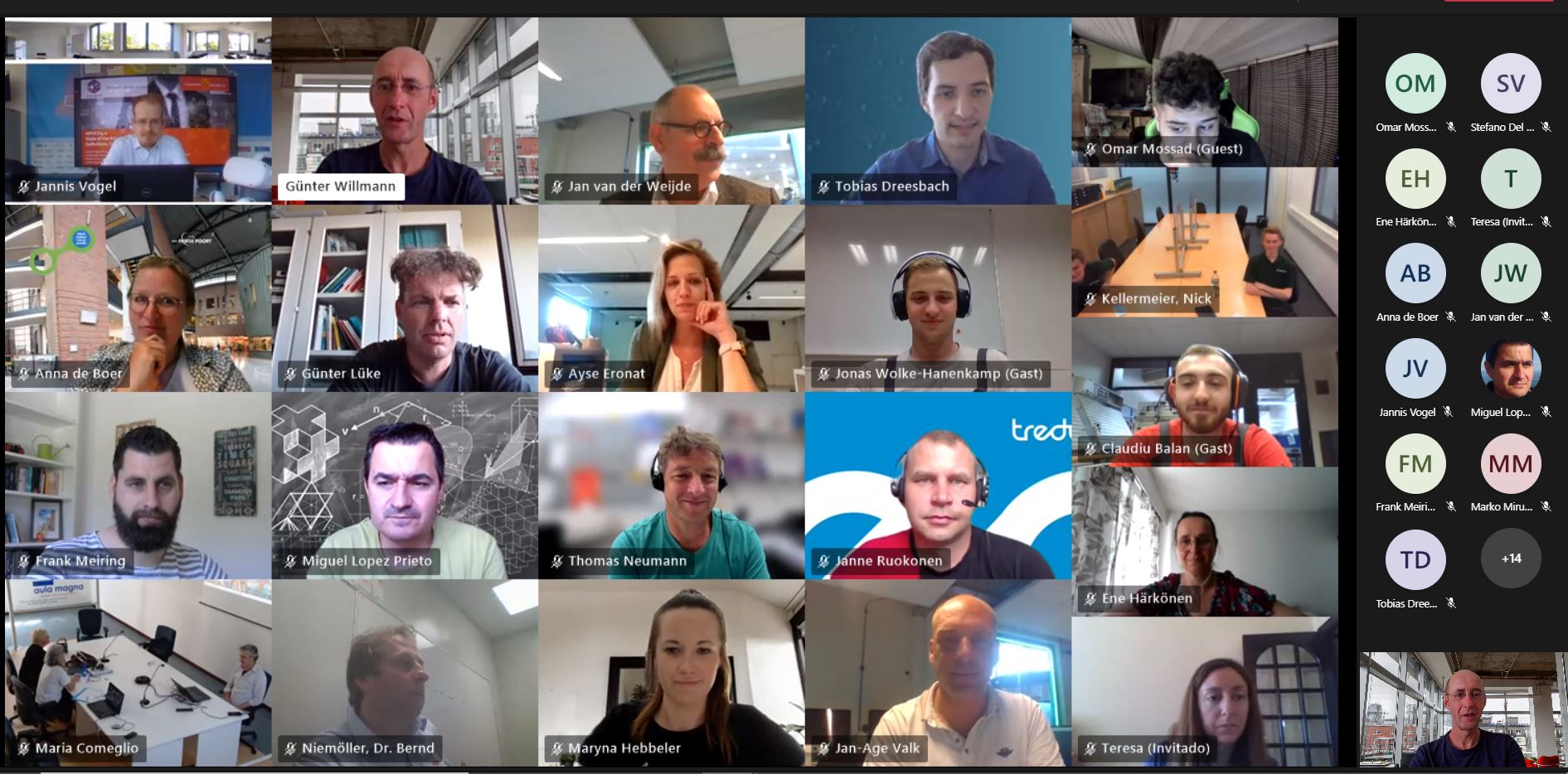
Arveti 4.0 Online Project Meeting on 10/06/2021
Project Timeline
08/03/2021-09/03/2021Kick Off Meetings (Online)
During the two-day online kick off of the project teachers from each college got to know each other and developed the project story and timeline. We got to know our each partner city through sharing pictures and videos. Of course we did some team-building games and discussed potential project partners and stakeholders. Finally, we distributed roles and decided which responsibilities each member of the project has. But most importantly we decided the tasks students should work on before the first meeting.
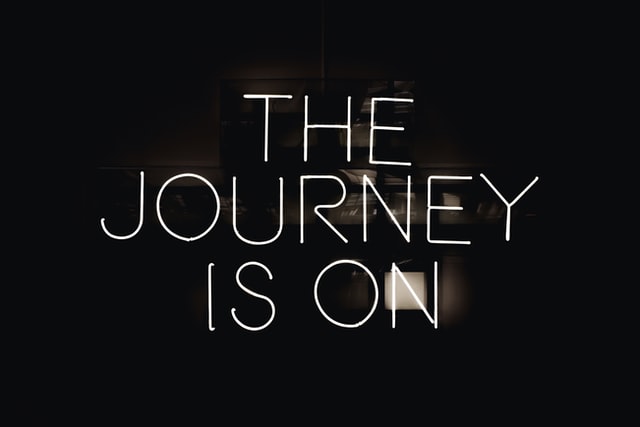
13/09/2021-17/09/2021TPM1 - Luino, Italy
When teachers met in Luino, Italy, we met for the first time in person. Unfortunately, Tredu (Finland) weren't able to join us due to pandemic regulations in their country, but joined in with activities online. Here, we fed back on the status and progress of the project in each country, clarified organisational details and began to plan the programme, workshops and leisure activities of the LTTA1.
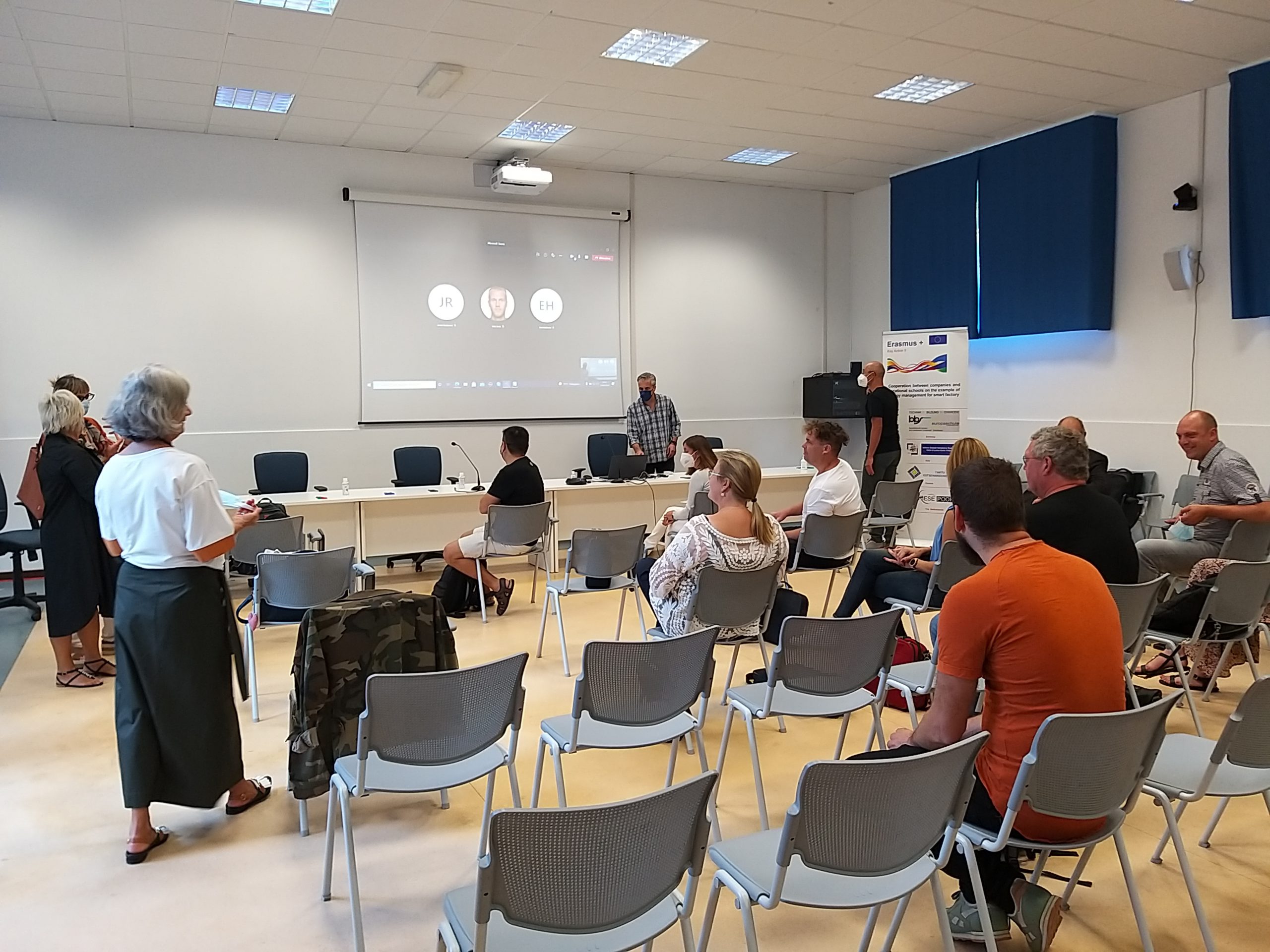
08/05/2022-14/05/2022LTTA1 - Dümmersee, Germany
The LTTA1 workshops in Germany wereorganized by students for students, by teachers as well as by external stakeholders (DFKI, training partners) and are conducted in international groups and evaluated collaboratively. In addition, our participating training companies Amazone, Grimme, Krone, Westnetz, Coppenrath & Wiese and Meurer, will each release two of their trainees from the fields of mechatronics, electronics technician for industrial engineering and electronics technician for automation technology for this project and support LTTA1 beyond these workshops.
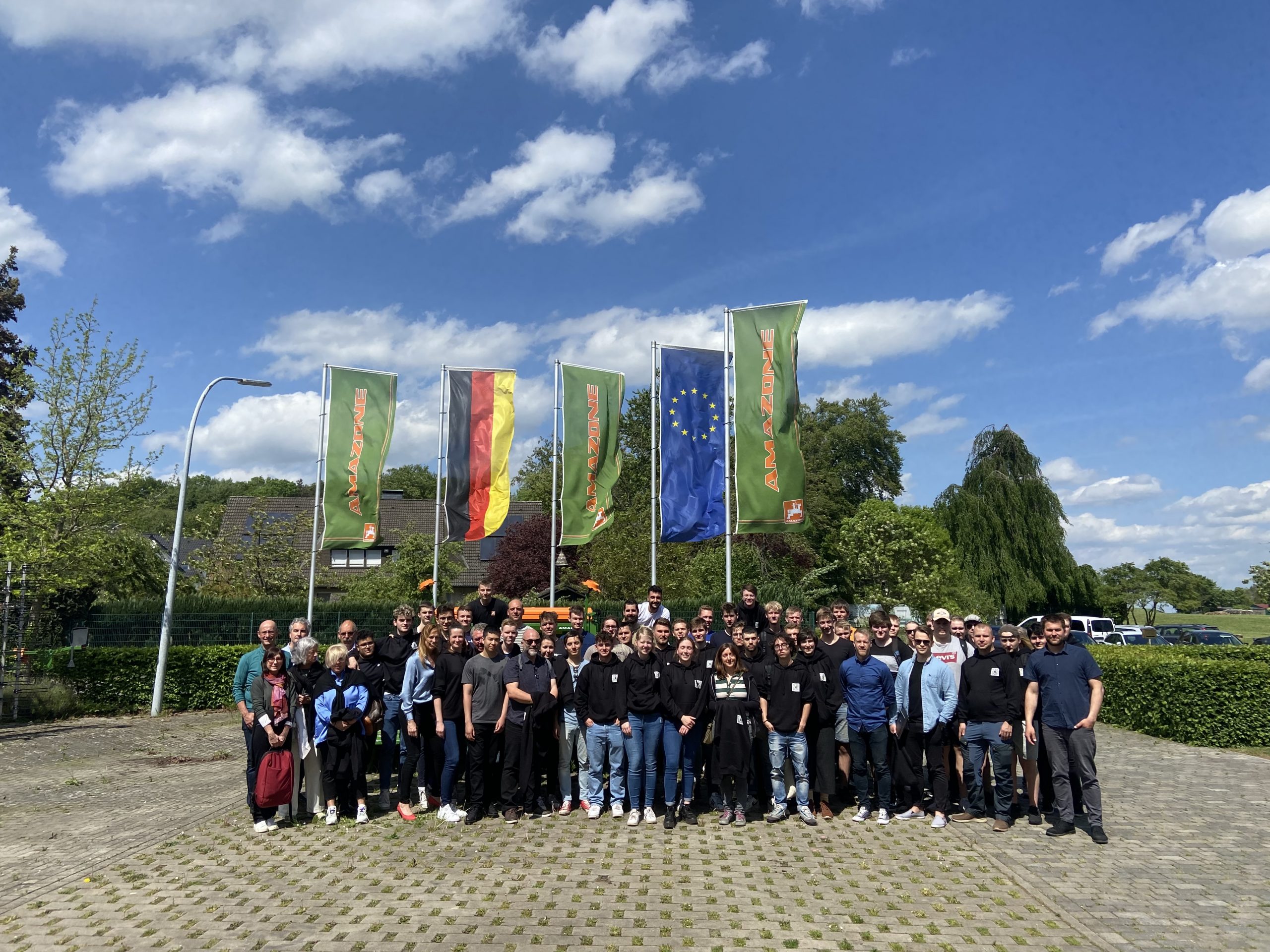
19/09/2022-23/09/2022TPM2 - Tampere, Finland
In September, teachers met in Tampere, Finland, to plan the next stages of the project. Here teachers reflected the strengths and weaknesses of the LTTA1 (Germany) and started to plan the LTTA2 (the Netherlands). We focused on the project timeline and the project targets: how do we co-create teaching materials that can be made available for all schools post-project? We also collected the project documents and agreed on the future targets. In Tampere, teachers had a chance to visit Valmet UX playroom, Patria Pilot Airbus and Diamonds simulators, Tredu learning environments (aircraft maintenance, forest machine hall, process technology, machinery and production). And Finland without sauna experience is not possible – thus, we enjoyed the traditional sauna and some heroes went swimming in the lake!
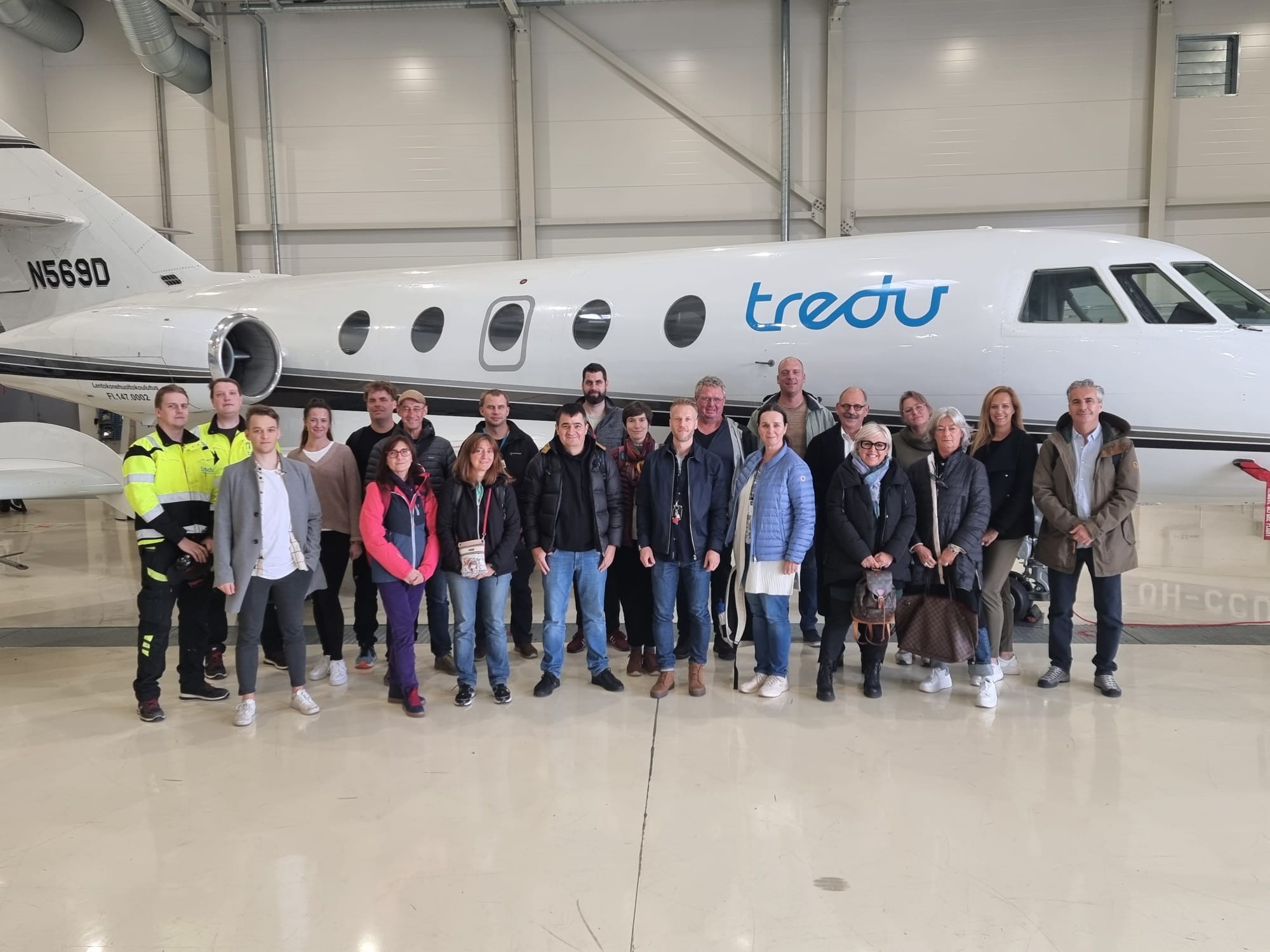
12/03/2023-17/03/2023LTTA2 - Sneek, Holland
The LTTA2 workshops in the Netherlands were organized by students for students, where in LTTA1 the focus was on discovering the materials, students now showed a deeper knowledge and more advanced skills towards the possibilities that augmented and virtual reality has. And although everyone uses it differently the basic principle is the same and therefore usable for all. In addition, seeing how this technology can be applied in work situations as well as communication activities and social activities made this a very powerful week. Students meeting students and being aware of the process that they are going through in their technical, cultural and social development is one of the greater benefits of the meeting we had in March in Schoorl – the Netherlands.
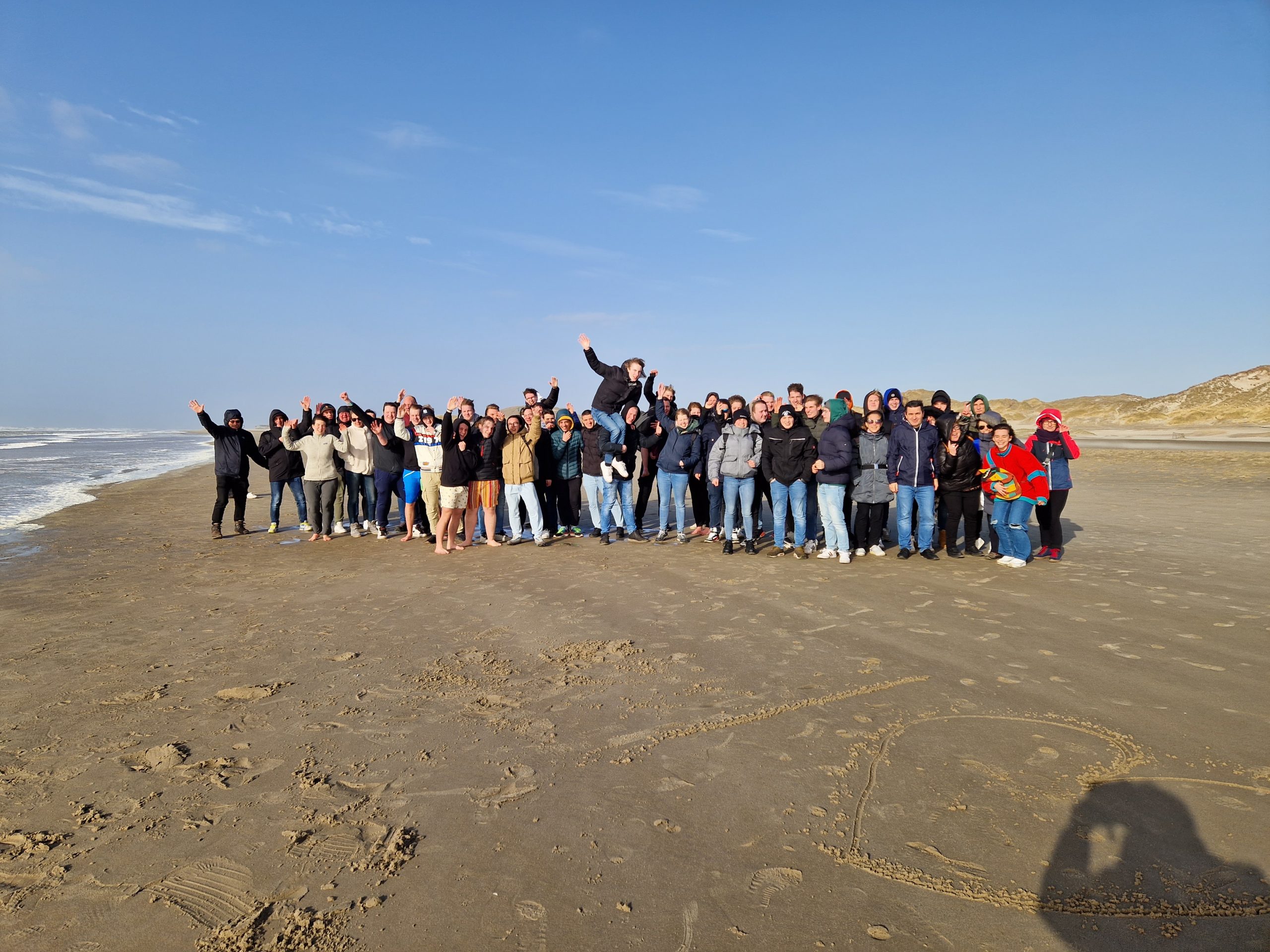
07/05/2023-12/05/2023TPM3 - Vigo, Spain
In Vigo, Spain, teachers met to share teaching materials created during the project for future use. Furthermore, results were evaluated and time was spent reflecting on the overall sucess of the project. We enjoyed collaborating with partners in Vigo, Stellantis and Akwel and visiting their factories. Of course, in between project meetings we found time to explore and took a trip to Santiago de Compostela and the Cies Islands. Arveti 4.0 is an example of what can be achieved when international technology educators and students come together to collaborate. We gained many insights into AR and VR applications in the business sector and were able to apply these to vocational settings. It is clear to all participants that these technologies will play an important role in all future industries. We agree that the key to advancement in AR and VR is understanding and communication!
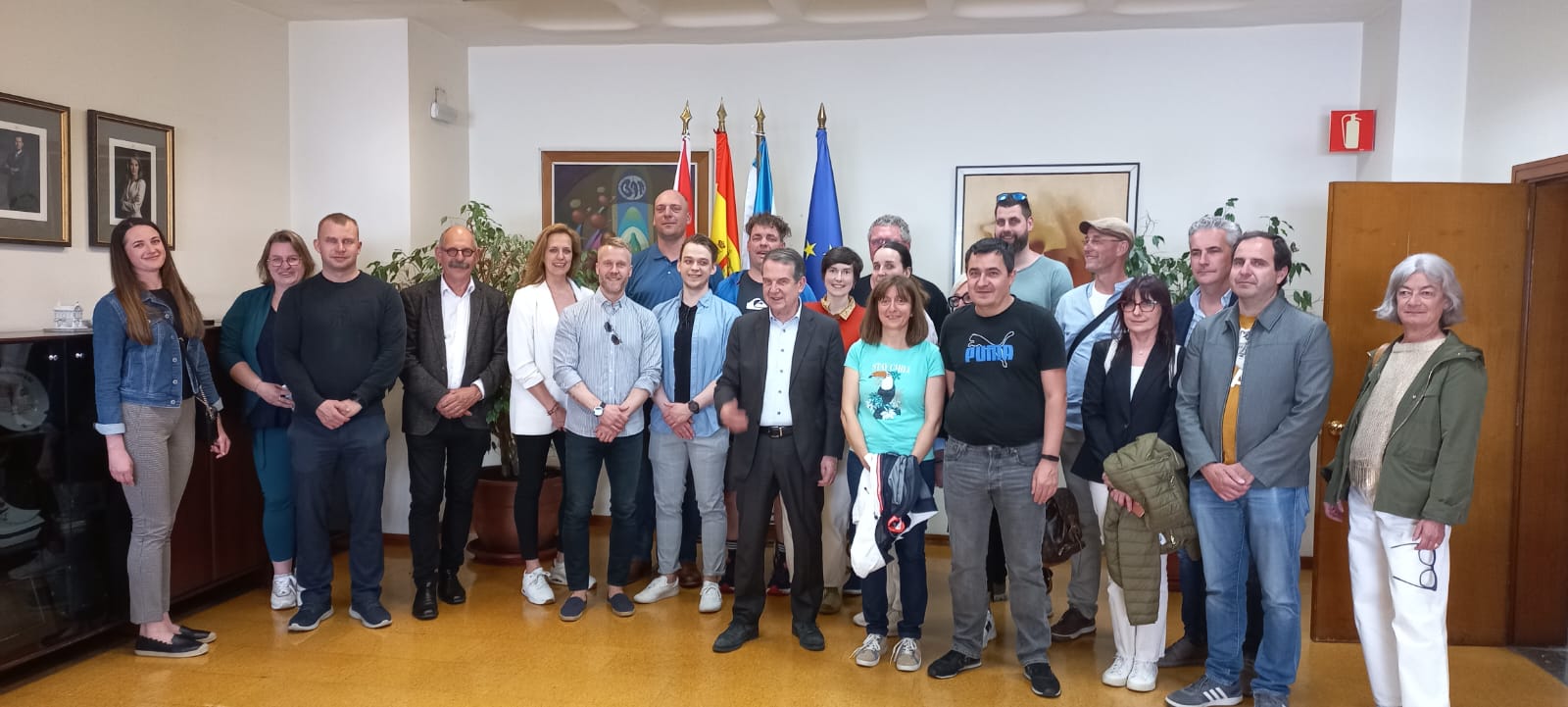
Project outline
Augmented Reality (AR) and Virtual Reality (VR) as part of the Industrial Revolution 4.0 – Where should European vocational training be heading in these times?
Project description
The growing degree of complexity of current and future technical processes demands training that meets the requirements. Skilled workers are confronted with increasingly complex systems that can only be mastered through experience and training time. This time costs money and should be reduced with the help of machines, which become more and more complex. Technology such as "augmented reality" and "virtual reality" is intended to support this. One of the aims of this project is to establish practice-relevant cooperation between vocational colleges and companies in this future-oriented area. With their service-oriented view, companies are facing these issues as well and in turn are looking for solutions. For vocational training and thus for skilled workers 4.0, this development raises questions about content and methodology. The collaboration between learning locations that has been carried out so far as part of the preceding KA2 project has triggered the cooperation as a tool for vocational training. In this project, this should be maintained and consolidated. Cooperation is to take place on a national and European level in order to create the broadest possible exchange of experience on technological possibilities and necessities and to expand experience in workplace-related and self-organized learning. Project objectives In this project, the AR and VR technologies from the European environment are to be brought together, examined in an application-related manner and prepared for school lessons. Furthermore, the partners’ best practice strategies should be implemented and consolidated and European cooperation between schools and companies should be strengthened. In order to acquire technical knowledge about possible areas of application and risks of AR and VR, a joint advanced training should be carried out. Each partner, together with companies, will get an overview of possible applications in the local area and will create learning situations in a workplace context, which will be carried out by students independently. On this basis, these students will create learning arrangements that will first be tested in their own school and will then be carried out and analyzed during the Learning/ Teaching/ Training Activity (LTTA) in mixed European groups. The created and evaluated learning situations will be adapted and carried out in all partner schools. The results and adjustments will be evaluated in the final Transnational Project Meeting (TPM).Expected results:
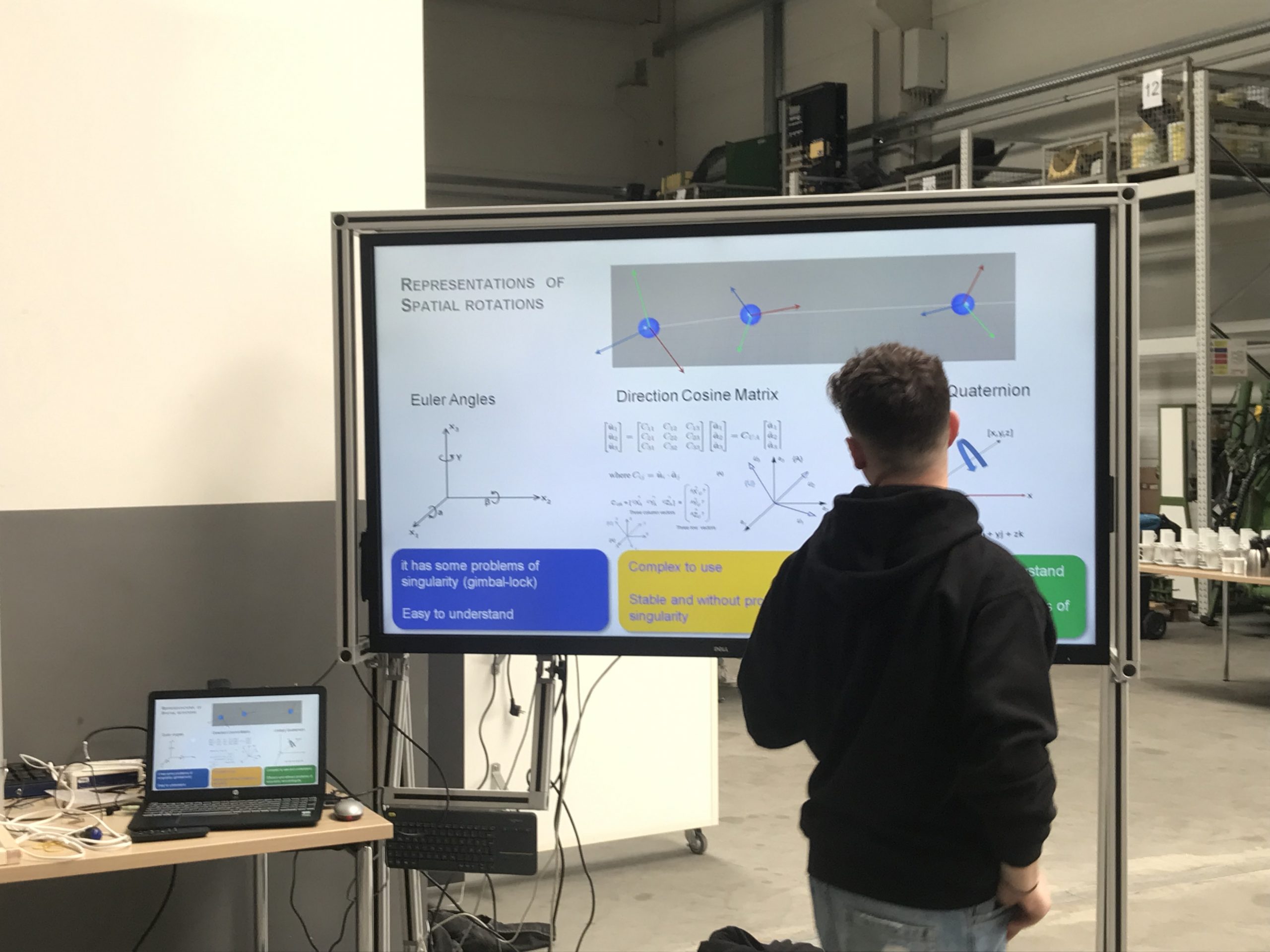
LTTA1: Post Amazone Visit
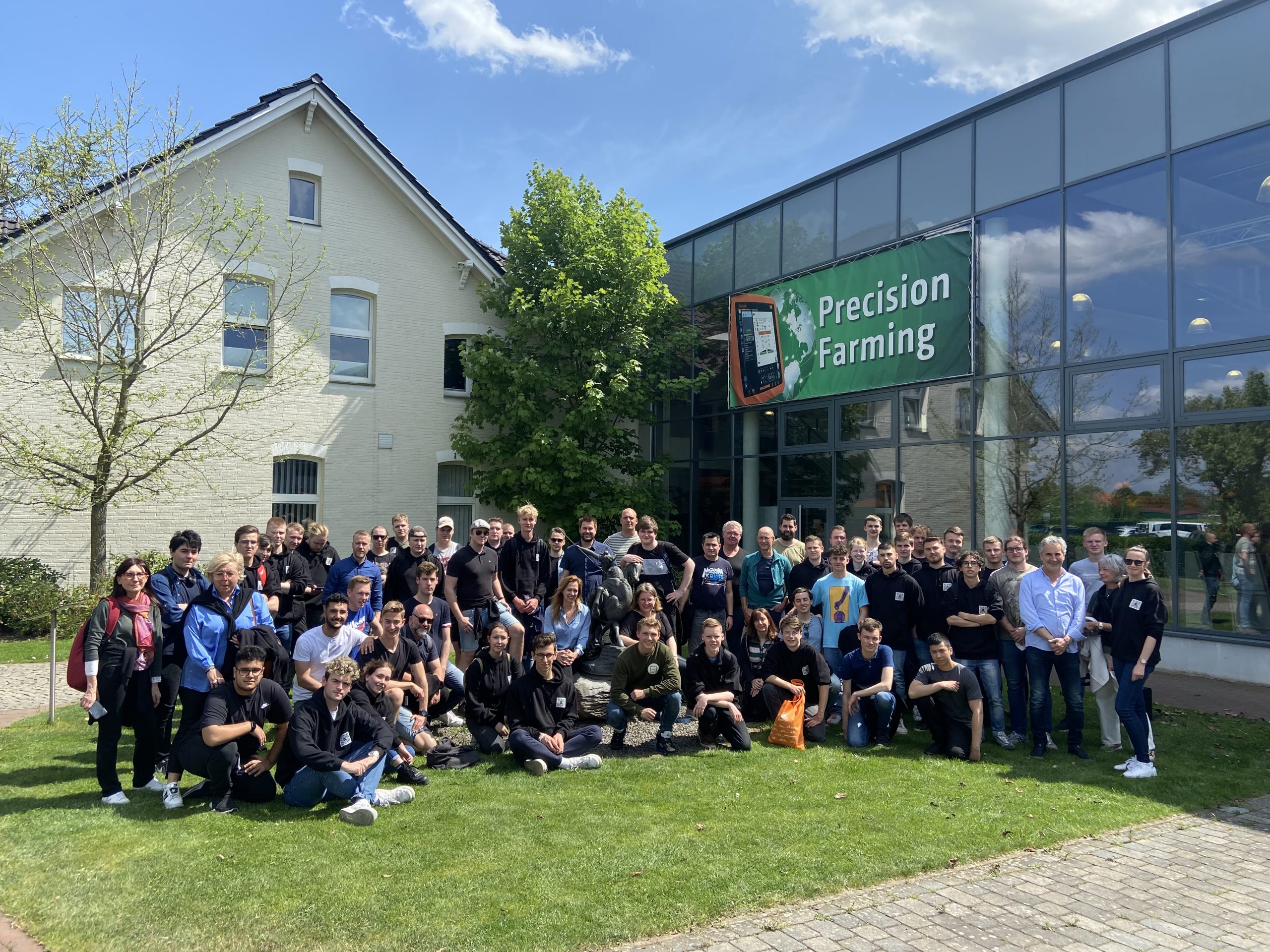
Group photo of the team outside Amazone after our visit. Amazone gave us a factory tour and introduced us to their already advanced uses of AR and VR in the customer services industry. Technicians in the company have programmed troubleshooting software to enable Amazone's customers to become familiar with their machinery without having to travel to the factory in person. Being able to see and test Amazone's technology was a great inspiration for students, providing them with first-hand experience of how modern companies are optimizing their customer care with state-of-the-art technologies.

